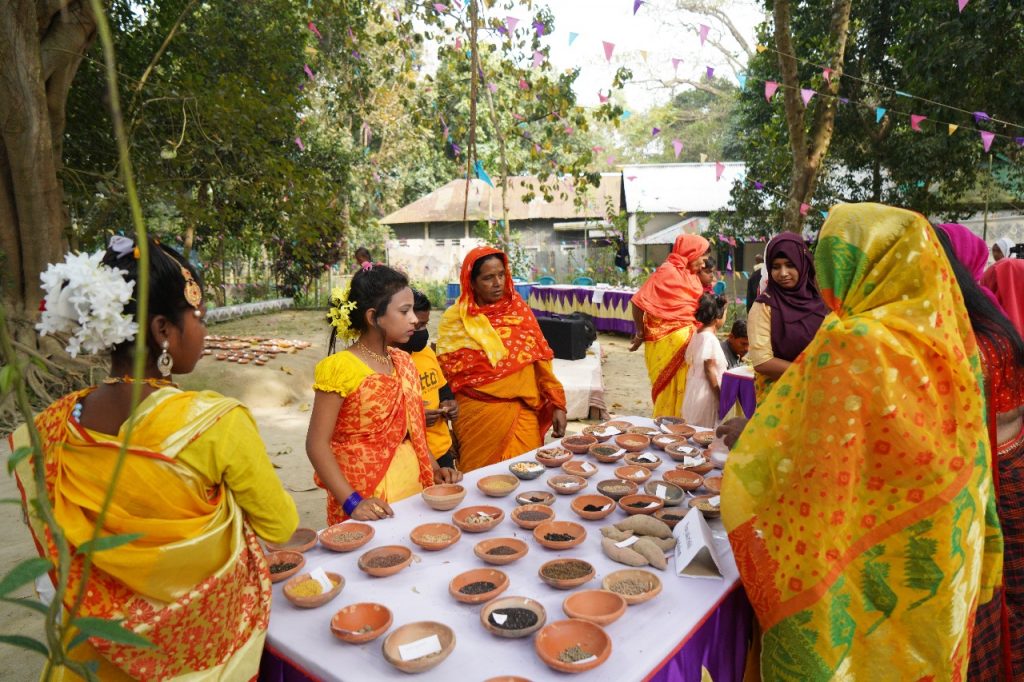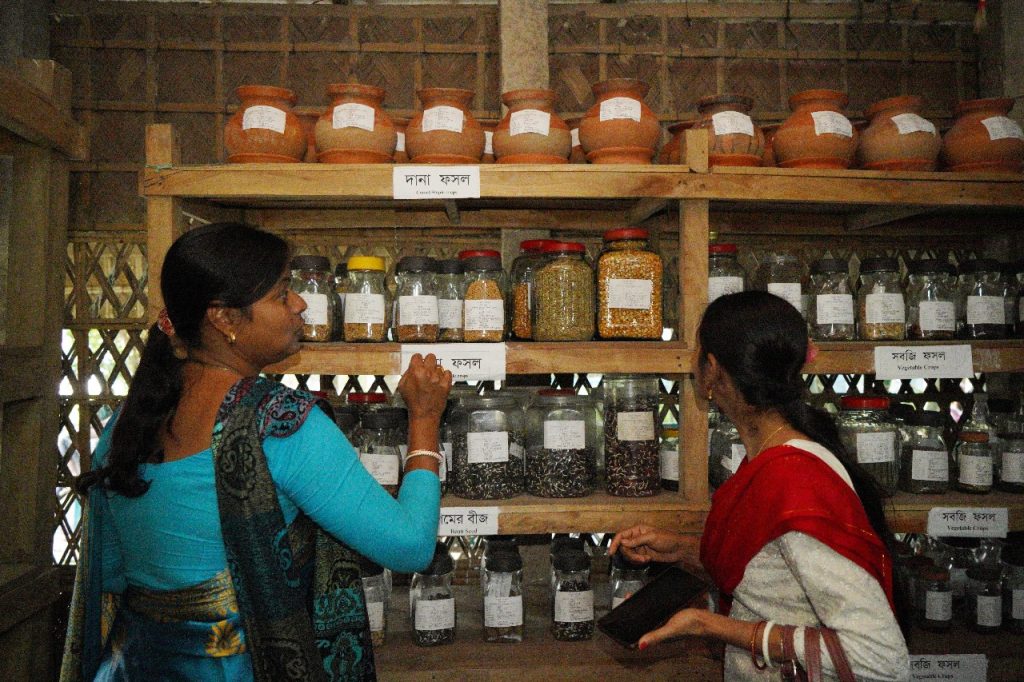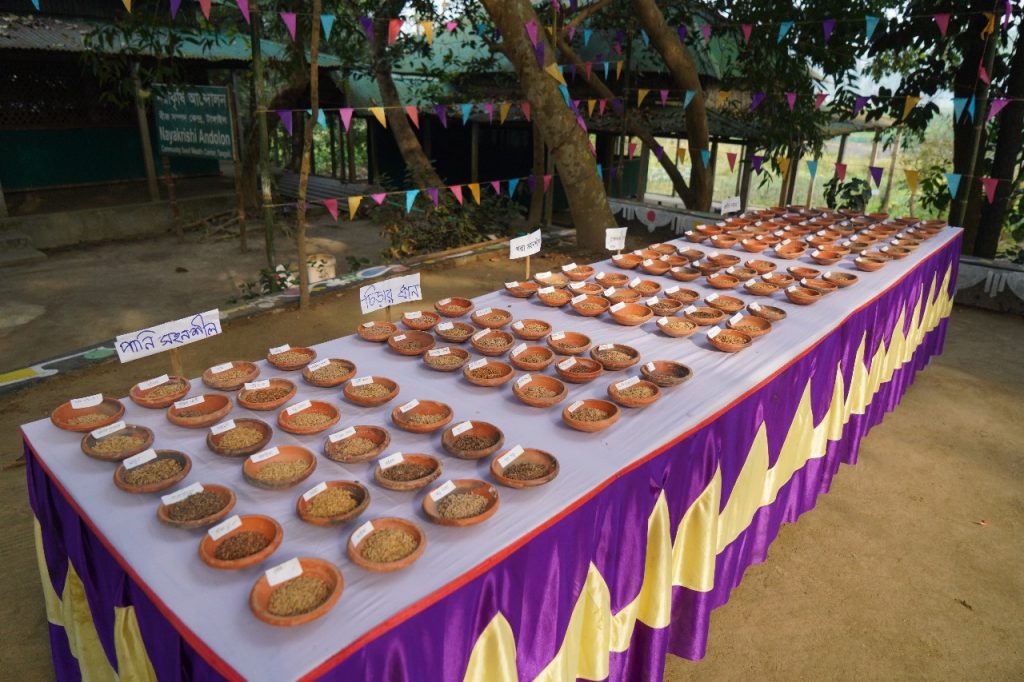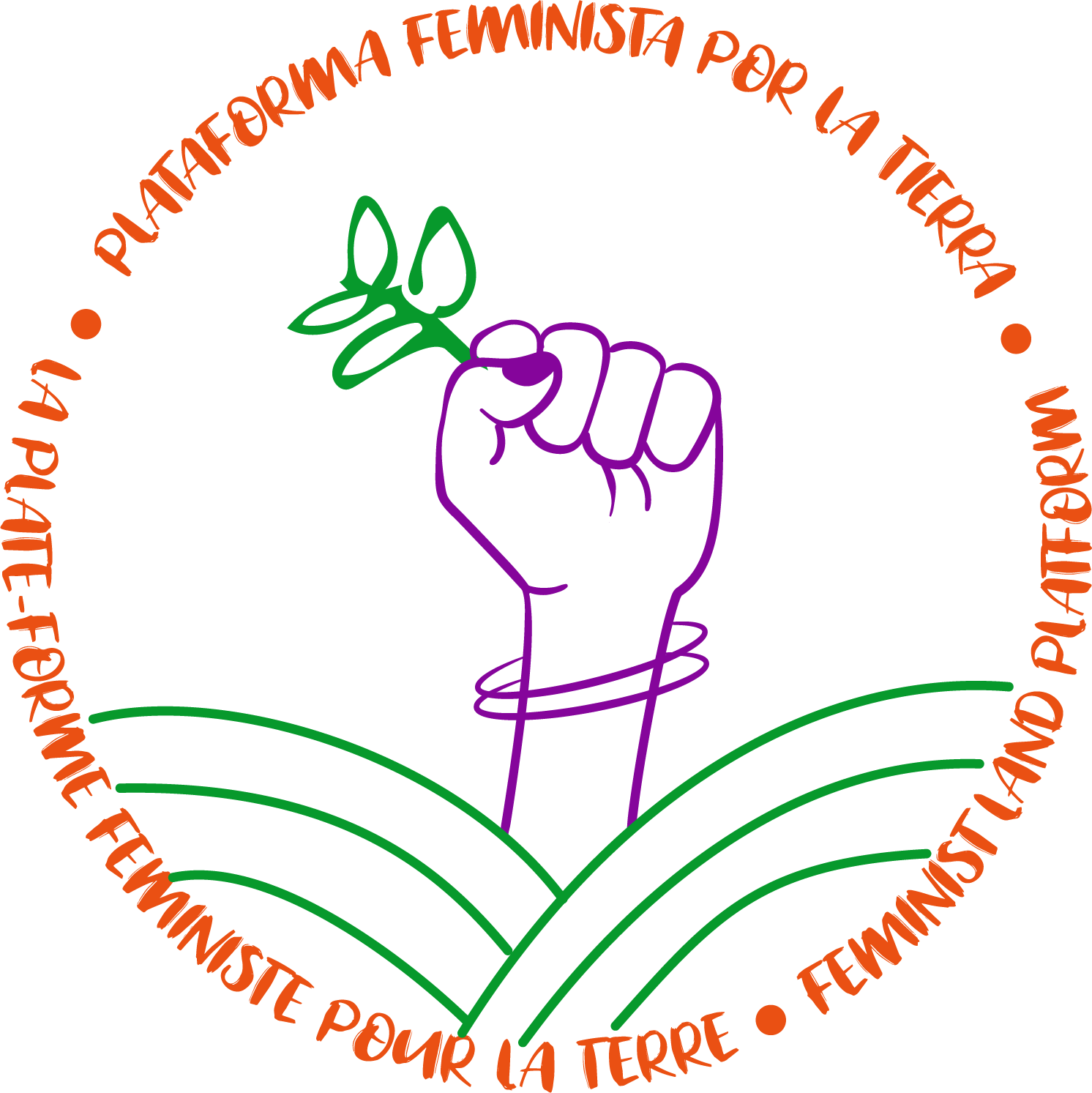“Nayakrishi agroecological practices and seed wealth preservation” is an inspiring practice developed in Bangladesh by UBINIG (Policy Research for Development Alternative), one of the members of the Feminist Land Platform (FLP).
UBINIG runs a farmers’ movement called Nayakrishi Andolon, a new agricultural movement that practices biodiversity-based farming and has more than 300,000 farming families as members all over Bangladesh.
The organization works at the grassroots level, solving challenges of livelihood and community existence in an increasingly globalized and intensely competitive economy, and at the policy level, by advocating for better solutions to challenges that affect the lives of the majority, especially marginalized people.
FLP recently mapped some of our members’ best resilience practices so that other communities and organizations can learn and adapt tools and strategies to their local realities. In this article, we’ll discuss one of the inspiring practices developed in Bangladesh by UBINIG. This is part of a series of articles detailing the best practices of each FLP organization. Check out our blog to read about all of them!

Nayakrishi agroecological practices and seed wealth preservation
This report is based on practices that take place in five districts of Bangladesh: Tangail (flood plain zone), Pabna, Natore & Kushtia (drought-prone zones), and Cox’sbazar (coastal area). It benefits over 80,000 farmers, among which 47,000 are women.
Nayakrishi Andolon is a biodiversity-based farmers’ movement created in 1992 and led by women. Their practice follows 10 principles, including no use of pesticides, chemical fertilizers, or groundwater extraction. They advocate for using local variety seeds and for collecting, regenerating, and exchanging seeds among farmers.
So far, the movement has collected more than 2,700 varieties of rice and 1,000 varieties of other crops, including vegetables, oil, spices, fruits, etc. It also keeps seeds for climate change-related crises such as floods, droughts, and cyclones.
Seeds are kept at the Community Seed Wealth Center (CSW), created in 1998 as an institutional system for the Nayakrishi Seed Network (NSN). “The main CSWs are located at the UBINIG centers in Tangail and Pabna. Seed Huts at the village level are also part of the CSW. Farmers deposit seeds and take seeds from the CSWs”, explains Farida Akhter, UBINIG’s executive director.
The communities involved mostly comprise small-scale farmers with less than a hectare of land each. Through this practice, they receive regular training on seed preservation and agroecological methods.
Those who do not own land raise goats and cows and work with the farmers. They share the cow dung and milk with the landowning families and get straw and other fodder in exchange.
Through this project, common land is preserved and kept free from harmful chemicals, so the poor and landless women can have access to edible plants and to the grazing of the livestock.
Community relationships are also based on seed exchange and sharing, which helps increase crop diversity. In times of natural disasters, the farmers share the seeds with those who have lost their crops and seeds.
For the development of this practice, UBINIG partners with the Department of Agricultural Extension, the gene banks of the government of Bangladesh, and women’s groups from all the 64 districts of the country, that make up the Women and Biodiversity Network. These groups work with farmers in their respective areas and take the seeds they need from the CSW.

Main results and challenges
The farmers started with less than a hectare, but many of them could enlarge their land over the years. It was also found that women felt the need to buy land in their names with their savings from raising cows and goats.
An important result from these agricultural practices was that many female-headed households (divorced and young widows) could buy land or take land on lease for cultivation and become food self-sufficient, since the agroecological methods do not require money for buying chemicals such as fertilizers and pesticides.
“More farmers are joining this movement, and women farmers are holding meetings on seeds and exchanging their knowledge with different groups. In February 2024, they hosted a visit of Sri Lanka and Myanmar farmers”, Akhter adds.
She also points out that Nayakrishi women farmers have become more conscious of their land rights and have been discussing it more often. “They are also talking about rivers, which help grow special local varieties. However, with the pollution of the rivers, such possibilities are disappearing”, she warns.
This practice is linked to the broader movement of food and seed sovereignty, and Akhter stresses that they face many challenges due to the corporate aggression with laboratory seeds, including GMOs, and to the fact that there is no government support for small-scale farmers.
“The Seed Law of the country is made for the seed breeding companies; thus, farmers’ rights are violated. So, the movement is significant for the communities”, Akhter concludes.


No comment yet, add your voice below!